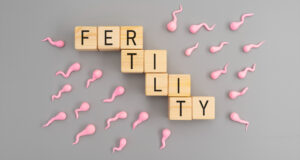Breastfeeding is bound to be the most beneficial thing a mother can do for the infant. It provides the best nutrition, boosts the immunity of baby, and enhances bonding between the baby and mother. However, to produce good-quality breast milk, as well as in order to remain healthy, a lactating mother must pay special attention to what she eats. Eating healthy food helps in secreting milk, helps in the development of the baby, and keeps the mother active during this stressful time.
Why Nutrition During Breastfeeding is Essential?
The breast milk is highly nutritious in nature and is specially tailored to meet the needs of a baby.
Curiously, the nutrition in the milk of the mother does not vary much even if she has an unhealthy diet. But her own body will be tapping into her stores of nutrients to nourish the baby, and it can drain or fatigue her if she is not performing at optimal levels. Proper nutrition while breastfeeding maintains energy levels, helps maintain hormonal balance, and helps with recuperation after childbirth. It also maintains necessary nutrients like calcium, vitamin D, iron, and omega-3s in sufficient quantities for mom and baby. Basic Lactating Woman’s Nutrients
Lactation should be complemented by a diet rich in these basic nutrients:
- Protein: For repairing the mother's tissue and infant growth. Supply eggs, lean meat, poultry, fish, dairy foods, legumes, and nuts.
- Calcium: For bone mineralization and milk production. In milk, cheese, yoghurt, green leafy vegetables, and fortified soy milk.
- Iron: Repays lost blood at birth and prevents fatigue. Foods rich in iron are fortified cereals, red meat, spinach, and lentils.
- Vitamin D: Helps to keep the baby's bones healthy and prevents deficiency in the mother. The requirement can be met from fortified foods or sunlight.
- Omega-3 fatty acids (DHA): Baby's brain and eye development. Incorporate fatty fish like salmon, flaxseeds, and walnuts.
Best Foods to Consume While Breastfeeding
Deep breathing, meditation, and prenatal yoga are great ways to soothe your mind and avoid anxiety. A few minutes daily can work miracles on your mood. Conscious breathing—in for 4, hold for 4, out for 4—can reduce stress hormones and induce relaxation.
Fruits and Vegetables
Take note to eat at least five portions daily. Strongly colored vegetables and fruits are rich in fiber, antioxidants, and vitamins. Leafy greens like spinach and kale are iron and calcium content while orange vegetables like sweet potatoes and carrots are beta-carotene, which helps harden the baby’s immune system.
Whole Grains
Complex carbohydrates such as oats, brown rice, quinoa, and whole wheat bread add sustained energy and fiber. Oats are also close to lactating women, as they tend to induce milk production.
Lean Proteins
Eat balanced protein foods at every meal. Eggs, chicken, turkey, fish, tofu, and legumes are all champions. Protein builds and repairs mom’s and baby’s tissue.
Dairy or Dairy Alternatives
Milk is rich in calcium, protein, and vitamin D. Vegan or lactose-intolerant, drink fortified plant milks like oat milk, almond milk, or soy milk to get your nutrient needs.
Healthy Fats
Obtain fat from fats that are healthy fats like fish that are high in fat content, nuts, seeds, avocados, and olive oil. Fats provide baby brain development and fill and satisfy the mother.
Foods and Beverages to Avoid or Restrict
All foods are okay in moderation, but the following should not be consumed:
- Caffeine: In minor amounts, it's probably okay (1–2 cups of coffee a day), but too much caffeine will disturb babies or affect their sleep.
- Alcohol: A little drinking is okay if it's sensibly timed. It is recommended to wait 2–3 hours after consumption of an alcoholic drink before breastfeeding once more.
- Mercuric fish: Shun swordfish, king mackerel, and tilefish since they have too much mercury that can be toxic to an infant's nervous system.
- Processed foods: They are too sweet, contain unhealthy fats, and little nutrition. Shun sugary foods, fast foods, and soft drinks as much as possible.
Babies may, at times, react to foods the mother eats, such as dairy, soy, or spicy items. If your baby seems agitated, see a pediatrician or lactation consultant before eliminating food groups.
Staying Hydrated
Breastfeeding mothers require good hydration since preparing milk requires a lot of water. Drink 8–12 glasses a day. The best fluid is water, but you may also take herbal teas, milk, and soups. Drinking a glass of water with every feeding is a good practice to follow.
Supplements for Breastfeeding Mothers
Although a good diet will provide most of the nutrients, there will be some extra supplements that will benefit certain mothers. Regular use of prenatal vitamins post-delivery is generally recommended. Except for this, vitamin D and DHA supplements will be beneficial if these are not adequately supplemented in food. Always discuss this with your health care provider before consuming any supplement when breastfeeding.
Practical Tips for Eating Well While Nursing
- Plan ahead: Keep healthy snacks like nuts, fruits, or granola bars on hand for when you’re busy or tired.
- Don’t skip meals: Eating regularly supports your energy levels and milk production.
- Listen to your body: Breastfeeding increases appetite—honor your hunger cues with nutritious foods.
- Rest and support: Sleep and stress management also influence your nutritional needs and milk supply.
Conclusion
The nursing mother’s dietary requirement does not have to be ideal, but it does have to be proper. An excellent variety of dense foods consumed will do the milk production some good, keep the mother in good health, and help in proper baby development. With care for whole foods, proper fluid intake, and your body’s requirements, you can be sure that you’re taking good care of yourself and your baby during this time.





